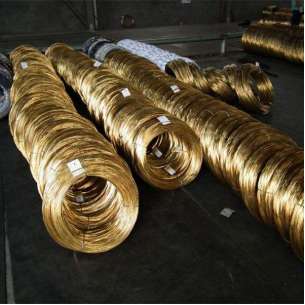Welcome to the wonderful world of brass wire, a metal that gleams like your grandmother’s silver and is just as versatile! If you’ve ever wondered why brass wire is such a hidden gem, you’ve come to the right place. Today, we’ll delve into the production process, various standards like H62, H65, H59, H68, and H70, and why Jindalai Steel Group Co., Ltd. is your top choice for brass wire. So, grab your favorite snacks and let’s get the brass party started!
What is the function of brass wire?
Brass wire is the Swiss Army Knife of metals. Its versatility, from electrical applications to jewelry making, makes it unparalleled in its appeal. Brass wire’s allure lies in its composition, which typically contains copper and zinc. Brass wire comes in various grades, such as H62, H65, H59, H68, and H70, each with varying strength, ductility, and corrosion resistance. So, whether you’re crafting exquisite jewelry or wiring your latest DIY project, there’s a brass wire that’s perfect for you!
Brass Wire Process and Standards
Now, let’s talk about the brass wire production process. While it’s not as complex as assembling IKEA furniture, it still involves several steps. First, the raw materials (copper and zinc) are melted and then cast into billets. These billets are then heated and drawn through a series of dies to create brass wire of the desired diameter.
Standards such as H62, H65, H59, H68, and H70 refer to the specific composition and properties of brass wire. For example, H62 brass wire is known for its excellent corrosion resistance, making it ideal for outdoor applications. H65, on the other hand, offers increased strength and is often used in electrical components. Each grade has unique characteristics, so choosing the right one for your project is crucial.
Application scenarios of brass wire
You might be wondering, “What can I do with this amazing brass wire?” Actually, the uses are endless! Here are a few examples:
1. Jewelry Making: If you’re a DIY jewelry enthusiast, brass wire is a great tool for you. It’s easy to use and can create beautiful designs that will make your friends envious.
2. Wire: Need to connect a new device? H65 brass wire is ideal for electrical applications due to its conductivity and strength.
3. Craft Projects: From home decor to model making, brass wire adds a touch of elegance to any project. Think of it as the finishing touch to your craft sundae!
4. Automotive Parts: H59 and H68 brass wires are often used in automotive applications due to their durability and resistance to abrasion.
What factors affect the price of brass wire?
Ah, that’s the million-dollar question! What causes brass wire prices to fluctuate like a roller coaster? Several factors come into play:
1. Raw Material Cost: The prices of copper and zinc vary greatly, affecting the overall cost of brass wire.
2. Market Demand: If everyone and their grandmother suddenly decided they needed brass wire for their projects, the price would inevitably go up!
3. Production Cost: The more complex the manufacturing process, the higher the price. So, if you want a high-quality product, be prepared to spend a little more.
4. Quality Standard: Higher grades of brass wire, such as H70, may cost more due to their superior properties.
In summary
Brass wire is a fantastic material that can elevate your projects to new heights. With Jindalai Steel Group Co., Ltd., you can be assured of top-notch brass wire, whether you’re looking for H62, H65, H59, H68, or H70. So, the next time you need shiny brass wire, remember: it’s more than just a piece of wire; it’s a lifestyle! Happy crafting!
Post time: Sep-13-2025









